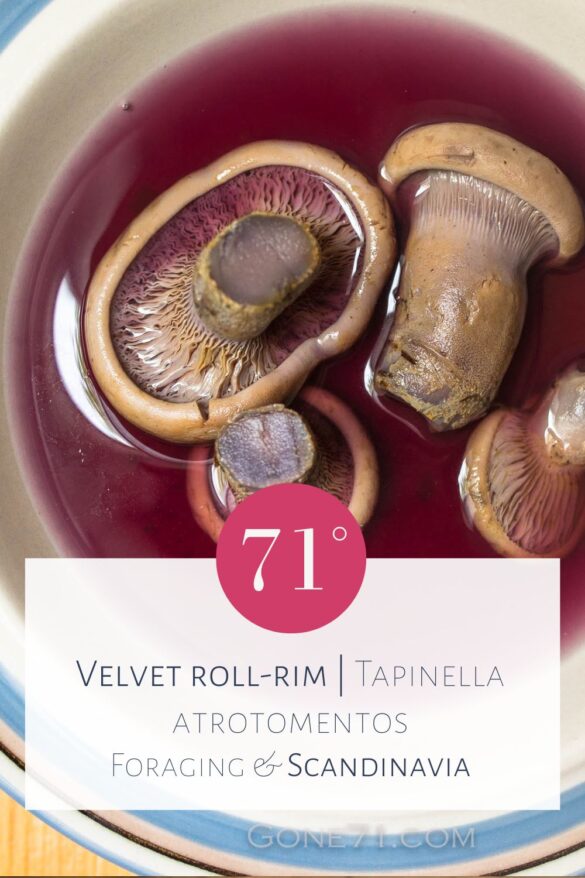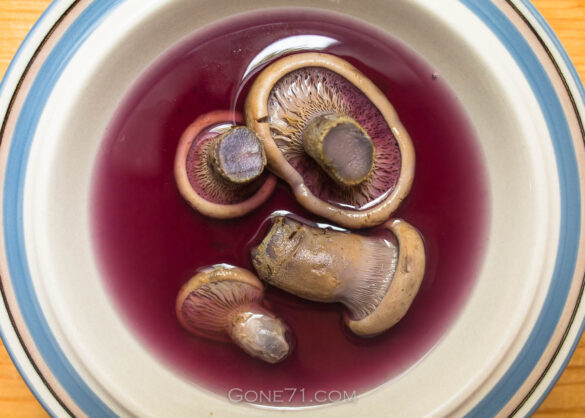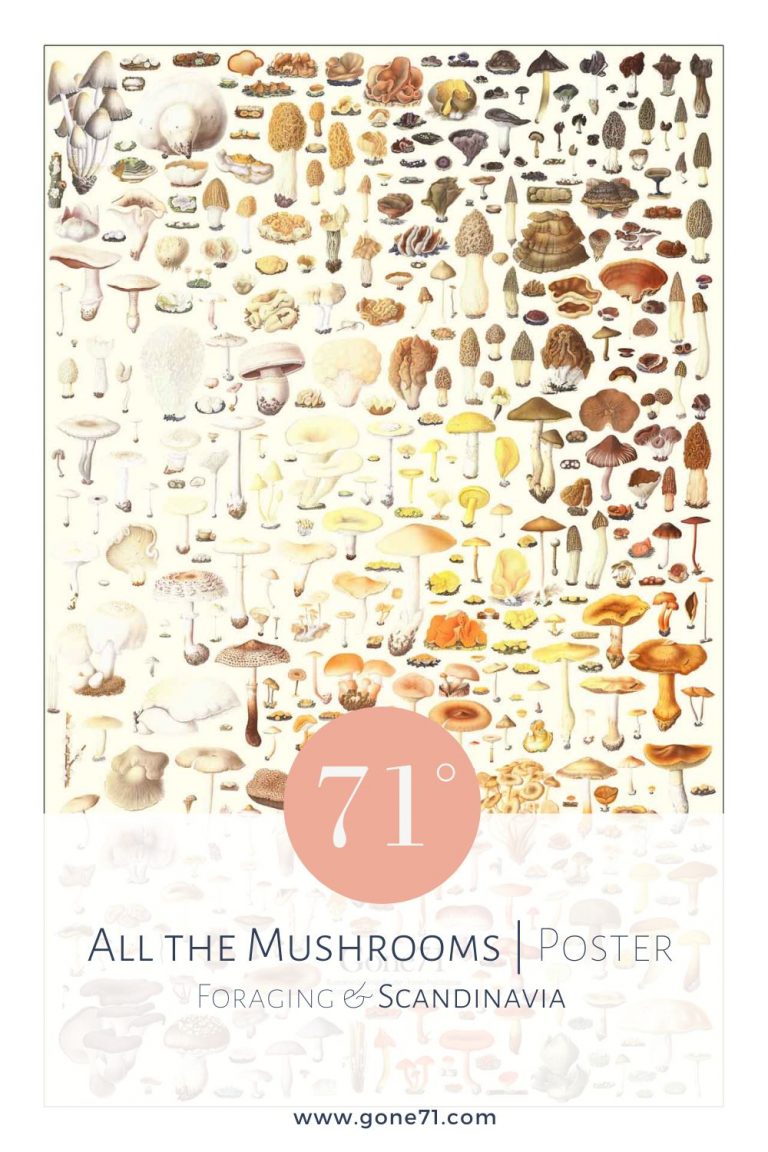swe.: Sammetsfotad pluggskivling | nor.: Fløyelspluggsopp | fin.: Samettijalka | dt.: Samtfußkrempling | eng. syn.: velvet-footed pax | sci. syn: Paxillus atrotomentosus
The velvet roll-rim or velvet-footed pax (Tapinella Atrotomentosa) is a very special mushroom that is also very pleasant to look at. In principle, it is not an edible mushroom in the conventional sense due to its bitterness. We know people who have eaten it and see it as one of the worst culinary experiences, for others it was the greatest highlight ever and they couldn’t get enough of it. The key to this mushroom is certainly in the preparation – we were convinced of the result!
We don’t want to encourage anyone to try this mushroom. A potential confusion with other roll-rims like the brown or common roll-rim (Paxillus involutus) can be deadly. The reports from other people just made us curious.
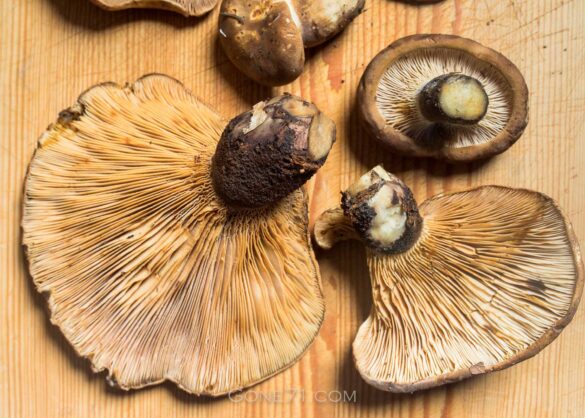
An anecdote about the velvet roll-rim
On a mushroom excursion, a mycologist told me that one of his friends once urged him to try this pickled mushroom and that the memory of it still haunts him to this day. In any case, he had no understanding for the consumption of this mushroom, especially when the variety of edible mushrooms is very large. I’ve heard such testimonials many times and can only understand them to a limited extent. As you will see – it all boils down to what marinade the mushroom is put in and this can be adjusted at your own likings.
Only harvest mushrooms that you can identify with 100% certainty! The consequences can be life threatening if you are wrong. If you have the slightest doubt: do not eat the mushroom! This is not a mushroom guide! For correct identification consult a mushroom expert.
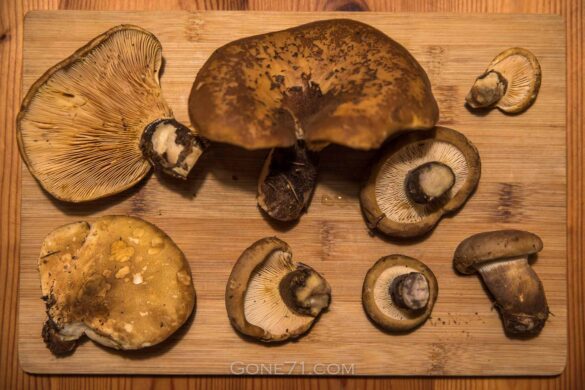
The secrete colour of the velvet roll-rim
And there is another special feature of the other kind in this mushroom. For the preparation, the mushroom is boiled and during the cooking process the water turns a beautiful purple color. This water was and can be used to dye e.g. wool and produces a brown-beige color as a result. Hence, the cooking process of this mushroom is an experience in itself.
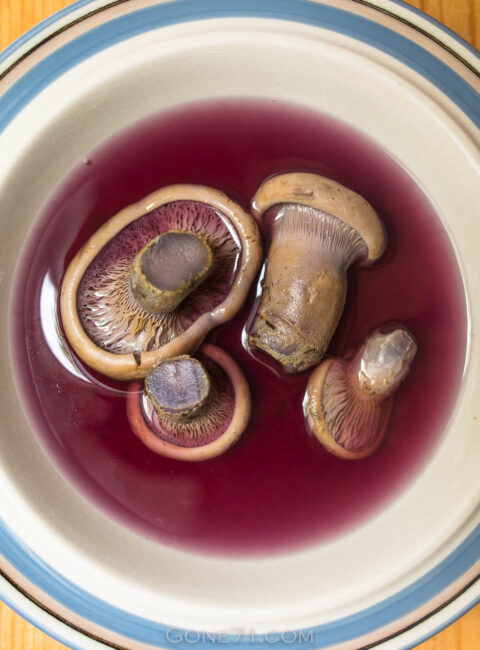
Appearance & habitat of the velvet roll-rim
We mostly find the fungus on old wood stumps and other deadwood, mostly wood from conifers. It can take on stately proportions and its velvety foot is an unmistakable feature. The fungus grows from summer to autumn and is very common.
diameter: 5 to 20 cm, reports of up to 40cm
months: July – October
colours: velvet stem, brown cap
habitat: pine, spruce
taste (raw): slightly sour, older specimen bitter
consumption: special preparation
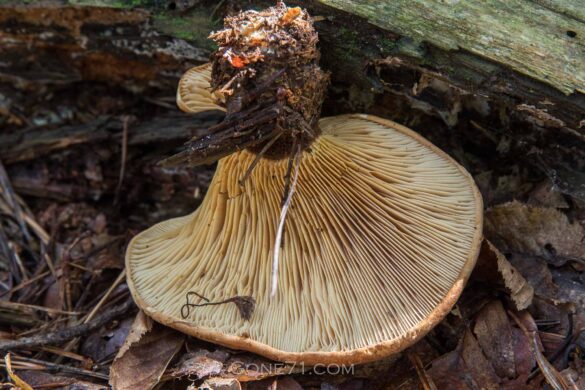
Confusing the velvet roll-rim (T. atrotomentosa) with the brown roll-rim (P. involutus)
Although the velvet stem of the velvet roll-rim is an unmistakable feature of this mushroom, confusion with other roll-rims cannot be ruled out. Apart from the stem, the brown roll-rim can look very similar and a mix-up can have fatal consequences. Repeated consumption of P. involutus is said to cause allergic reactions resulting in death, breakdown of the blood and kidney failure. This poisonous mushroom is said to be eaten well cooked in Eastern Europe and parts of Scandinavia, but the cooking process is said to be insufficient to neutralize all the toxins it contains. So keep your hands off!
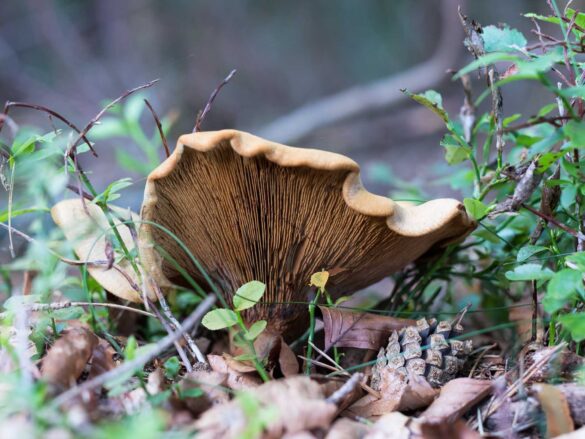
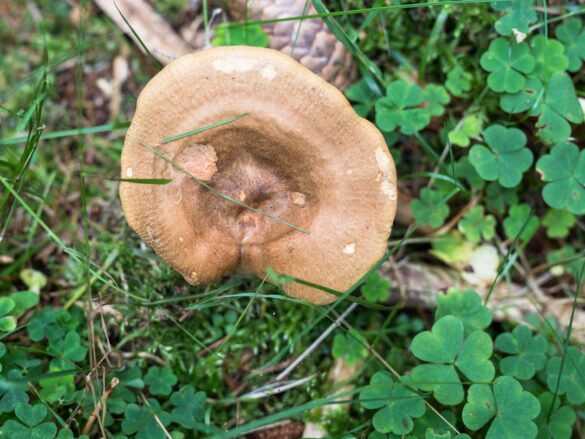
The velvet roll-rim in the kitchen (finally!)
Due to “normal” preparation and as a classic mixed mushroom, the velvet roll rim is actually not usable from our point of view. For our purposes, we have stuck to a preparation method that removes the bitter substances from the mushroom and makes it edible as a kind of sour pickled mushroom.
We cook the cleaned mushrooms whole for two times 10 minutes and pour away the purple cooking water. The velvet stalks are removed and the remaining mushroom is cut into fine strips. Then we prepare a marinade from vinegar, olive oil, onions, garlic, honey, salt and pepper as well as various herbs and put the cut mushroom pieces in for at least 3 hours. If you want, you can of course also add other vegetables such as peppers according to your own taste. The mushroom has a pleasant, crunchy consistency and is vaguely reminiscent of pickled sausage or meat. Of course, the taste in the end comes from the marinada and depending on what you like here, you should get involved accordingly.
In any case, our initial skepticism at the first tasting quickly evaporated and the result convinced us.
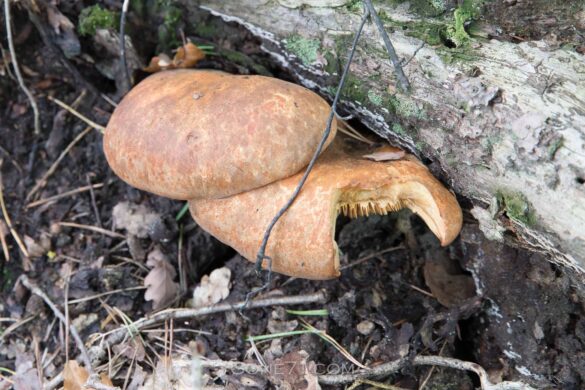
But is it worth the effort to cook velvet roll-rims?
There are regular battles on major mushroom forums about whether the mushroom tastes great or just plain awful. In between there is usually not much. And the question of how much time and effort it takes to prepare is also often addressed here. We can only say that everyone has to decide for themselves whether they are open and/or suitable for such experiences. In any case, all that we can say is, that for us it is an enrichment of our culinary mushroom horizon and we will eat it again.
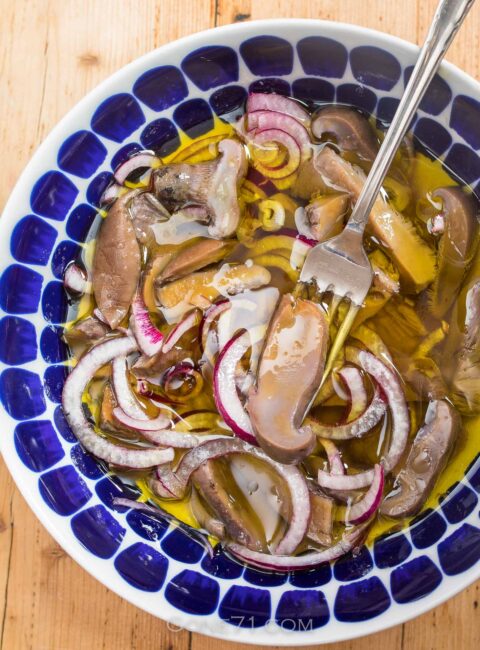

Velvet roll-rim aka Velvet-footed pax (T. ATROTOMENTOSA)
Ingredients
- 500g velvet roll-rim
- 1 onion
- 3 cloves of garlic
- vinegar
- olive oil
- 1 teaspoon honey or sugar
- salt
- pepper
- spices according to your own taste (e.g. cumin, mustard powder, turmeric, ginger... )
Instructions
- Clean the young mushrooms well. As an exception, you can also use water here, since the mushrooms are cooked anyway.
- Then boil for two times 10 minutes and pour away the purple water.
- The stems are removed from the cooked mushrooms. The caps are cut into fine strips.
- Cut the onion into thin rings.
- Halve or quarter the garlic.
- Mix the garlic, onion, vinegar, oil and spices for the marinade in a bowl.
- The amount should be chosen so that the mushrooms are well covered by the marinade.
- If you like it sour, add a little more vinegar. If you like it a little milder, you can dilute it with a little water or use more oil.
- Season with salt and pepper
- Leave for at least 3 hours.
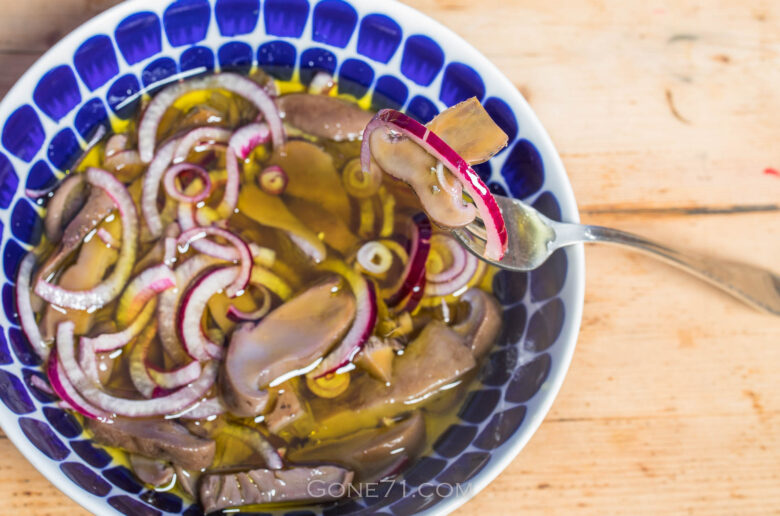
We have compiled this overview with the best of knowledge and belief, but do not claim to be complete and reserve the right to make errors.
Learn more about poisonous mushrooms and mushroom poisons here
↓↓↓
Find some inspiration in other mushroom recipes
↓↓↓
